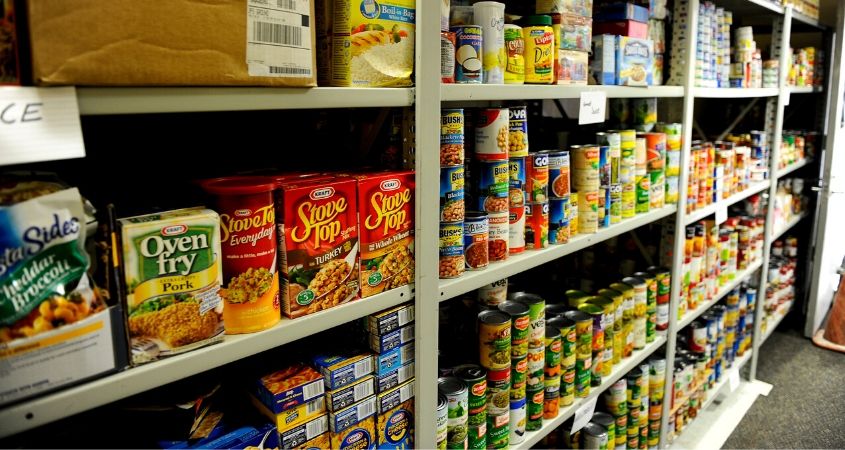Two Feet of Love in Action: Living Generously Beyond December
BY TINAMARIE STOLZ | December 6, 2019
I know this statement might make some people mad. But, I still feel called to say it. I do not understand how those who genuinely care about providing Christmas gifts to low-income families can simultaneously care so little about the systemic issues keeping them in poverty. How come Christmas goodness and generosity are detached from justice issues?
How can we have compassion for a child’s Christmas morning and anger toward a free lunch program? How can we desire to give a child toys, but not a well-resourced school? How do we admit that low-income families struggle to afford Christmas gifts but insist they can financially provide daycare, health care, clothing, food, or housing?

Imagine a child who receives donated gifts on Christmas morning. Picture the joy on their face as they unwrap that special toy or game—Santa did come! Visualize their guardians. Imagine the happiness and peace well-up in their hearts. Think about the comfort they feel knowing their child’s belief in Santa will live for another year.
Now imagine it is December 26th. For this family, it’s back to work. The guardian heads to a full-time job, which pays $9.00 an hour. The child plays without them. They come back for dinner but end up eating another peanut butter sandwich. It is the end of the month, and SNAP benefits do not reload until January. It’s off to a weekend job, praying the tickle in their throat leaves with some tea. The child falls asleep in front of the TV.
Catholic Social Teaching calls us to the two feet of love in action—charity and justice.
One foot is charity. Charity means there are givers and receivers. Usually, it occurs on a one-to-one basis; think the corporal works of mercy. For example, feed the hungry by donating to a food pantry. There is a giver of food and a receiver of food. Charity also addresses immediate needs. For instance, someone is cold, so they are given a free coat at a warming center. Other examples include donating clothes to a shelter or giving money to a non-profit organization.

I worked in a food pantry during my year of service in Detroit. I cannot adequately explain the importance of food donations—it literally kept our community fed. Contributions were crucial. But do you know what happened to those big Thanksgiving and Christmas canned-good donations come March? They ran out. And they were difficult to replace.
The other foot is justice. Justice is about changing social structures that oppress God’s children. Usually, through advocacy, protesting, voting, lobbying, or contacting representatives about oppressive laws. Justice addresses root causes, while charity addresses the symptoms. Charity gives people food, and justice looks into why people are hungry in the first place. It analyzes broken or unjust systems, names the problem, and fights for long-term solutions.
At the end of my service year, I had a significant internal crisis. I remember crying to my spiritual director, “What was this all for? I’m going to leave, and they’re still poor. I didn’t do anything. I didn’t change anything.”
He looked at me and calmly responded, “What made you think this year was about changing them? It was about changing you.”
I learned one of the most important lessons of my life in that session. No amount of service in the pantry would have provided a living-wage or a local grocery store, and no amount of lobbying would have cured our community’s hunger pangs for that same evening. If I wanted to be a change-maker, I would have to stop hopping and start walking. Because we can only move towards God’s vision for the world with two feet—charity and justice.
I am often left disappointed with Christmas generosity because it usually only runs an extra trip to Target deep.
There is nothing wrong with giving Christmas gifts to families in need. That is real authentic generosity and goodness. The invitation is to let that generosity go deeper than December and deeper into our wallets, our civic engagement, and our free time.
So this Christmas season and beyond, let us walk with two feet. Let us commit to an advocacy action for each donated item. Let’s look into why our donations are going to one particular part of our city or state. What’s keeping people in that area on the margins? Then let’s take a step to encounter and befriend those we donate to. What organizations can we volunteer with? What non-profits or church groups are standing with marginalized communities? Next, let’s take steps to promote and find long-term solutions alongside our new friends: vote, attend a town hall meeting, protest, call representatives, start a petition.
Is this a lot of work? Yes. That is why we cannot only live generously during December. Toys are important on Christmas morning, and just policies that keep people out of poverty are essential all year long.
Tinamarie Stolz is an adjunct theology professor and campus minister at Saint Joseph’s University in Philadelphia, PA. She holds a master’s degree in theological studies from the University of Dayton in Dayton, Ohio.



Charity is fine. But offering opportunities to people to work is still better. Work gives dignity and we are all called to live in dignity.